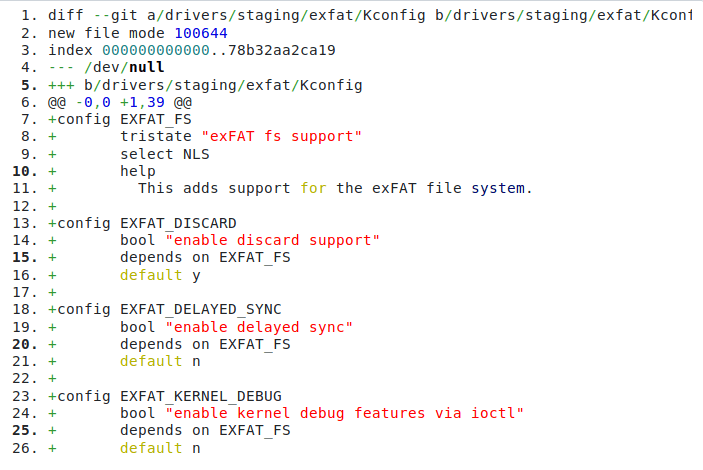Microsoft’s exFAT file system is quite popular for removable mass storage devices such as SD cards and USB flash drives as it’s supported in Windows, and many consumers devices such as cameras can handle Microsoft’s patented file system.
The “patent” part causes an issue in Linux, as companies need to license it in order to ship it in their products or operating systems image. I recently re-installed Ubuntu 18.04 on my laptop, and if I reinsert my “test” USB drive: BTRFS, EXT-4, and NTFS partitions all mount automatically, but not the exFAT one. If I click on the partition, I get this message:
That’s because Canonical does not provide exFAT by default in Ubuntu due to legal issues.
It’s however easy enough for the user to install exFAT utilities
|
1 |
sudo apt install exfat-fuse exfat-utils |
The drive will mount successfully:
|
1 2 |
mount | grep -i exfat /dev/sdc3 on /media/jaufranc/USB3_EXFAT type fuseblk (rw,nosuid,nodev,relatime,user_id=0,group_id=0,default_permissions,allow_other,blksize=4096,uhelper=udisks2) |
Note that it’s using FUSE (Filesystem in Userspace), and it’s usually not a problem with today’s fast processors, but I remember adding NTFS via Fuse in a system powered by Arm9 processor clocked at 200 MHz many years ago, and it was much slower than EXT-4 due to the extra time required to copy data from the kernel to userspace and vice-versa.
But soon those issues will not matter anymore, as Microsoft has announced their plan to bring exFAT to the Linux kernel, and released the specification to help in the effort. This will also solve the patent issue:
We also support the eventual inclusion of a Linux kernel with exFAT support in a future revision of the Open Invention Network’s Linux System Definition, where, once accepted, the code will benefit from the defensive patent commitments of OIN’s 3040+ members and licensees.


Jean-Luc started CNX Software in 2010 as a part-time endeavor, before quitting his job as a software engineering manager, and starting to write daily news, and reviews full time later in 2011.
Support CNX Software! Donate via cryptocurrencies, become a Patron on Patreon, or purchase goods on Amazon or Aliexpress





